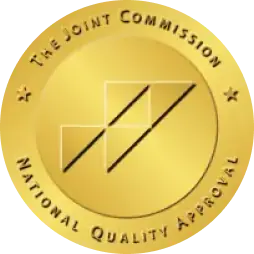National Recovery Month began 35 years ago in 1989 as a way to celebrate people in recovery from alcohol and drug abuse.
Recovery Month is now held every September and celebrates the recovery community. Resources for this nationally recognized month offer connections to evidence-based treatment providers, support groups, and platforms where you can find peers in recovery.
People recovering from a substance use disorder can celebrate, recognize, and work on their milestones, recovery goals, and accomplishments during this designated month.
Top 9 Ideas for Honoring Addiction Recovery Month
Whether you’re new to recovery from substance use, or you’ve been on this journey for years, you may benefit from new, innovative ways to recognize this incredible life milestone.
Here are our top ideas for recognizing, celebrating, and supporting your progress during National Recovery Month.
1. Find a New Art Form
Art therapy has been shown to have positive effects on mental health for thousands of years. And addiction is both a mental and behavioral health condition.
So, people recovering from an alcohol or drug addiction may benefit from artistic expression.
Here are some new art forms you may be able to try this recovery month:
- Drawing, sculpting, or painting
- Learning to play a new instrument
- Photography
- Joining a community theater production
- Writing self-essays, poetry, or reviews
- Sewing, crocheting, or mending clothing
- Making jewelry
- Creating videos
- Cooking different cultural foods
2. Host a Recovery Celebration
If you’re in the recovery community, hosting a recovery month event may be a fun way to show support for yourself and your peers in recovery.
Here are some top tips for hosting your celebration this September:
- Let people know the event is sober friendly, or drug- and alcohol-free.
- Only invite people who will respect your recovery goals. If this means leaving out family members or loved ones who trigger your substance abuse, so be it. Your recovery should always come first.
- Plan the event around a theme, such as Dress Like Your Spouse, or bring your favorite non-alcoholic beverage to share.
- Find replacements for substance abuse. Find games that center around non-substance prizes or incentives, like a White Elephant gift exchange game or Gift Pokeno.
3. Begin a 30 Day Recovery Journal Challenge
Journaling can help boost your confidence, improve your self-esteem, and achieve your recovery goals.
Consider trying a journaling challenge for 30 days, such as:
- Writing down 10 things you are grateful for each morning
- Freeform journaling, or writing down all your thoughts for a specific amount of time
- Following a daily journal writing prompt
4. Join a New Support Group
Support groups offer direct ways for you to connect with peers in recovery from drug and alcohol addiction and support recovery efforts.
You can find support groups from the Alcoholics Anonymous (AA) website, on the Substance Abuse and Mental Health Services Administration (SAMHSA) website, or listed in local community social media groups.
Most group-based support services are anonymous, and all are collaborative.
5. Unplug for a Week for Your Mental Health
Recovery Month is all about national observance of recovery, and a huge part of recovery is paying attention to your mental and emotional health.
Social media, the internet, and the fast connection to information can detract from your mental well-being.
One study showed that young adults who completed a digital detox from social media for just one week saw improved emotions and overall life satisfaction.
Concerned you won’t stick to it? Tell a friend and have them help hold you accountable.
6. Try Giving Back to Your Community
People at any stage of recovery can find benefits by volunteering, including improved physical and mental health, building new relationships, learning new skills, and finding a sense of purpose.
To find volunteer opportunities in your community, try:
- Joining a local volunteer information social media group
- Calling your local hospital, clinic, or animal shelter
- Helping a local clothing closet, food pantry, or other charitable organization
7. Find Ways to Support Your Overall Wellness
Ongoing self-care is crucial both right after addiction treatment and in long-term recovery from drug and alcohol use disorders.
You can only thrive in recovery if you address all health issues, not just addiction.
Some ways you can make time for your own wellness this Recovery Month:
- Get your hair or nails done
- Commit to 30 minutes of exercise each day
- Read for 30 minutes each day
- Wait 30 minutes after waking up before checking your phone
- Treat yourself to a spa day
- Get the massage or chiropractic visit you’ve been putting off
8. Take on a Fitness Activity or Hobby
Regular exercise can help safeguard against health issues and diseases and regulate symptoms of mental illness. It can also boost your mood, energy levels, and feeling of life satisfaction.
You can make exercise fun by taking on a fitness hobby, such as Zumba (dance fitness), spin classes, dance kickboxing, hiking, martial arts, or yoga.
9. Become a Recovery Sponsor or Mentor
One of the top recovery practices involves giving back within your own recovery community. An important part of advocacy is helping others reach freedom from substance abuse.
When you reach a long-term, stable time in your recovery journey, you may consider becoming a sober sponsor, or recovery mentor.
Part of being a mentor could mean helping them find recovery resources, recovery services as needed, teaching them about ongoing substance use prevention practices, and more.
Dive Into Your Addiction Recovery Journey
Find help for yourself or a loved one from drug, alcohol, or opioid use disorder this National Recovery Month.
At Hope’s Destiny in Pennsylvania, we offer treatment options for all substance use disorders, as well as mental health issues.
Reach out to our helpline now to learn more about our mental health and addiction recovery center, outpatient treatment programs, and how we support our patients in recovery.
Sources:
- Alcoholics Anonymous. “Find A.A. Near You.” Accessed on September 19, 2024 from https://www.aa.org/find-aa
- The Association for Addiction Professionals. “National Recovery Month.” Accessed on September 19, 2024 from https://www.naadac.org/national-recovery-month
- Mayo Clinic. “Helping people, changing lives: 3 health benefits of volunteering.” Accessed on September 19, 2024 from
- https://www.mayoclinichealthsystem.org/hometown-health/speaking-of-health/3-health-benefits-of-volunteering
- National Institute of Health. “Role of Art Therapy in the Promotion of Mental Health: A Critical Review.” Accessed on September 19, 2024 from https://www.ncbi.nlm.nih.gov/pmc/articles/PMC9472646
- Psychiatry. “Healing Through Art.” Accessed on September 19, 2024 from https://www.psychiatry.org/news-room/apa-blogs/healing-through-art
- Substance Abuse and Mental Health Services Administration. “Find Treatment Locators and Helplines.” Accessed on September 19, 2024 from https://www.samhsa.gov/find-help
- University of Nevada. “National Day of Unplugging: 5 Reasons to Digital Detox.” Accessed on September 19, 2024 from https://www.unlv.edu/news/article/national-day-unplugging-5-reasons-digital-detox






